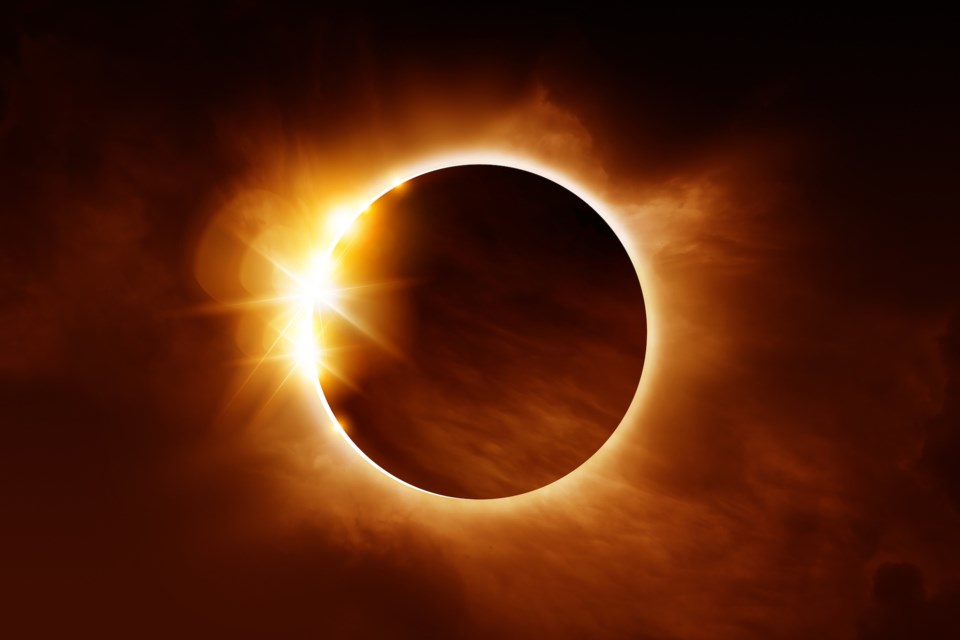North Bay will experience a partial solar eclipse on Monday with 91 per cent obscuration.
The eclipse is expected to occur in the afternoon between 2:07. and 4:31 ., with its peak at 3:21 p.m., when most of the Sun's light will be obscured by the moon.
"It is not safe to look at the Sun without approved eye protection," warns Fire Chief Jason Whiteley.
"Even a small glimpse before or after the eclipse without proper eye protection can cause eye damage or vision loss. Only glasses or viewers equipped with specialized filters adhering to the ISO 12312-2 should be used to safeguard against eye damage during an eclipse."
Precautions must be taken throughout the entire duration of the eclipse.
Wear approved glasses or viewers when observing the eclipse and look away from the Sun before removing them. Potential risks of viewing the eclipse without proper protection include retina burns, blurred vision, and loss of eyesight. These effects may occur immediately or within 12 to 48 hours after exposure.
Seek immediate eye care if you experience any temporary or permanent vision issues during or after the eclipse. Contact an eye-care professional, such as an optometrist, or seek emergency medical attention if blindness occurs, either immediately or delayed, after viewing the eclipse.
Safety Precautions and Considerations:
- Children should be supervised during eclipses as they may not fully understand the associated risks.
- Avoid direct or indirect viewing of the Sun, including through window reflections or mirrors.
- Whenever possible, schedule indoor activities during the eclipse to minimize the risk of sun exposure.
- While driving, continue as usual and refrain from looking at the Sun. Utilize hats, shades, or visors to block any visible light. Do not wear eclipse glasses while driving and keep headlights on for increased visibility.
- Be prepared for changes in lighting conditions during the eclipse, which may resemble dawn or dusk. Exercise caution while driving or engaging in outdoor activities and wear high-visibility clothing if necessary.
- Regular sunglasses do not provide sufficient protection for direct sun viewing. Avoid using cameras, telescopes, binoculars, or any optical devices to view the Sun, as they can cause retinal burns.
- Use safe solar eclipse viewers or filters. Ensure that viewers are validated by accredited laboratories before use.
- Explore alternative viewing methods, such as an eclipse box or live streaming, when feasible. A live stream of the solar eclipse can be accessed.



